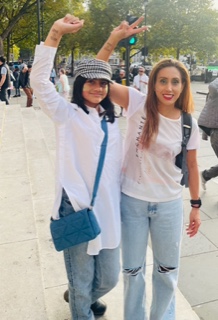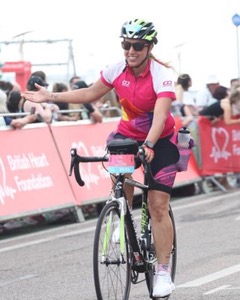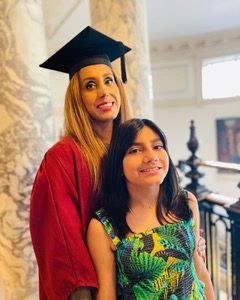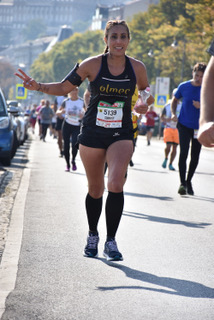Thursday 14th September 2023

As part of her commitment to eliminating gender bias across the housing sector, Tracey McEachran, President of Women in Social Housing and Director at Curious Minds Consulting has been exploring why women are still struggling to find their voice. Tracey recently shared some first-hand experiences and compelling research, including the findings from a study of 250 academic seminars across 10 countries on gender disparity.
The study found that men were 2.5 times more likely to ask a question, and that women often felt uncomfortable sharing their ideas and perspectives, particularly if they felt their contributions may be dismissed or not taken seriously.
Other studies have shown that women are interrupted more than men when speaking, perceived as more emotional than their male counterparts if they offer an opinion, and tend to ‘move out of the way’ in order not to step on others’ toes.
A stronger voice, together
WISH’s #HearHerVoice campaign aims to help change the equity dynamic across social housing, and is part of a number of initiatives geared at creating an inclusive environment where everyone feels comfortable sharing their unique experiences and perspectives.
As part of this drive, Tracey recently invited Somayeh Tosi, Business Leader, Mediator, Vice Chair at Westway Housing Association and Solicitor, to speak at WISH’s first #HearHerVoice event.
We were privileged to hear Somayeh’s story of resilience, determination and success against the odds as an Iranian woman, and her continuing advocacy of equal rights for women and girls. Her story coincides with the Woman, Life, Freedom movement anniversary on 16th September, which commemorates the death of Mahsa Amini.
Amini was a young Iranian woman who died last year in police custody, after being arrested for improperly wearing a hijab in public. Her death sparked widespread protests across the country, with thousands of protesters still in police custody to this day. On 16th September, peaceful protests will be held in capital cities around the world for Amini and the women of Iran, and to shed light on the millions of women around the globe who still don’t have a voice.
The webinar received some incredible feedback from women who felt inspired to speak up and be heard after hearing Somayeh’s story. This reinforces why it’s so important to use our voice, not just for ourselves, but also to advocate for other women.
For those who did not get a chance to catch the webinar, we’re sharing Somayeh’s interview with Tracey, where she tells her awe-inspiring story, eventually leading her to become a housing leader and solicitor in the UK, where she continues to be a strong advocate for women and girls.
We start by joining Somayeh as a small child growing up in Iran. Somayeh reflects on her initial childhood experiences, navigating the societal expectations placed on her from an early age, and how they went on to shape her life, and eventually, her own relationship with her daughter.
Somayeh’s story
“I grew up on the streets of Tehran during the time of Iran/Iraq war as a little girl, and the choices for me were very limited. The question for me was not about what or who I wanted to become, but ‘which one of these narrow options will you choose?’ The options placed before me included things like housewife, mother, nurse, midwife…these were the things considered acceptable to become as a female.
As a 
Those experiences must have been difficult to navigate as a child. You have clearly developed a lot of tenacity and strength through your formative experiences. What helped you to build the resilience and the determination to succeed?
“Luckily, my parents were very open minded, and despite the outside pressure, they would provide me with magazines and books so that I could continue to learn about the things I was interested in. But if I wanted to pursue these activities as a female, I was under no illusion that it would be easy living in my country. I remember as a child saying to my mum “I’m going to change things, I’m not going to leave Iran to pursue a career, I’m going stay and make it work for me here.”
I got into University of Tehran at a young age after studying hard, but the only option available to me at that time as a woman was to become a nurse. So I qualified as a nurse at the age of 17, and tried to do what I could to be a strong advocate for women through my work. I wanted to become a paramedic, but was told that I could not perform the job as a woman, because I could not lift patients. I proved them wrong, and became one of the first female paramedics in Iran. Once women saw another woman in the ambulance, they felt safe, and this created more trust and engagement between the ambulance service and the patients.

Throughout my studies I was singled out as a woman and was, according to my lecturer, ‘talking too much,’ which got me into persistent trouble. At one point I was arrested, taken into custody and detained overnight, because I had dared to make a comment about government policy in the class. I was taken to trial at 3 o’clock in the morning, with no support, my parents were not told where I was, and the outcome was that I was to be expelled from the University. Luckily, I had a friend at the university whose father was a lawyer, and we were able to reverse the decision. I carried on, qualified, and went on to write a book about macro-economics at the age of 21.”
Those are some incredible achievements, as well as some very scary experiences. What was the catalyst for your move to the UK?
“These experiences were a major turning point in my life. I received an accreditation for my book, however, when the time came for it to be published, I was told “we cannot publish this under your name, because you are a woman. It has to be published under a man’s name because no one will read the book otherwise.” The male author could acknowledge me in the book and say that I helped him, but that would be the limit of my recognition. Of course I said no to this, and this was when I made up my mind to move to the UK.
I felt that if I moved to London and achieved a master’s degree, I could take this back to Iran and have a stronger voice for women in my country. That was the plan. But things changed, and after moving to London, by the time I completed my MBA, I was married with a daughter, and I started studying law.
I continued to experience challenges as a foreign woman in the UK studying law, but despite being told I could not be a solicitor due to my accent, I am now a qualified solicitor, using my voice to advocate for others in need.
Even now I face gender bias. I recently attended a hearing, and my opponent solicitor was a man. The judge was supposed to be talking to me as the applicant’s solicitor, but before I had even opened my mouth, he started talking to the opponent solicitor instead. Luckily, we had agreed the terms beforehand, and we both knew what needed to be said, but this is just one example of bias faced by professional women every day.”
It's true that we still have a lot of work to do here to eliminate gender bias. Are things any different now for women in Iran? Now that you have a daughter of your own, how does this make you feel about your own experiences?

I feel privileged to have a voice and to have my freedom. But even here in the UK and other developed countries, women are still dealing with so many issues around gender equity. I only realised this once I moved out of Iran that there is still a lot of work to be done everywhere.
We can look at sport for example, it’s only recently that women have won greater equity. Female sports professionals could not even have paid maternity leave until recently, they would have to give up their career and sell products instead of continuing as a professional. In every sector, including housing, there are so many obstacles for women to overcome.
Still, after all my experiences growing up in Iran, I considered going back after having my daughter. After I became divorced, I was offered a very good job with a great salary back in Iran, and my family would be there for support. But in the end, I decided it would be better for her to grow up in the UK, after reflecting on all my personal experiences growing up as a female in Iran. It’s been difficult bringing up my daughter here alone. But she feels British, and although she is very proud of her Iranian heritage, she does not want to live in Iran.”
It can be very difficult bringing up a child as a single parent in the UK without the support of family, especially when you are from another land. Has your daughter experienced any discrimination or bias as she has grown up in the UK?
“I’ve seen my daughter experience some racial discrimination whilst growing up here. In reception, despite being bi-lingual, her development was consistently assessed as lower than it was because she didn’t speak English as quickly as her classmates. She also loves dancing and acting, and used to go to a dance class when she was younger which made her feel excluded. When watching class performances I noticed she was always being pushed to the back rows, and seemed to be prohibited from being given the front facing roles, I felt, due to her skin and hair colour being different.
You have worked incredibly hard to overcome the obstacles and difficulties you’ve faced as woman growing up in Iran, and also living here in the UK. As women and mothers, we tend to want to support other women and show our daughters how to be strong and resilient. Sometimes though, we can carry past trauma and learned behaviour with us without realising. Have you ever experienced this phenomenon?
“Yes! Recently, my daughter surprised me by saying “Mum, please tell me what you want me to become, and I will become that person for you. I know how much you love running, and I want to make you proud, so if you want me to become a runner, I will become a runner, as much as I don’t like running". I was shocked by this. I told her that I am proud of her no matter what, and she should become whatever she chooses.
My daughter wanted to show me how much she loves me by doing what I want her to do. This was a big wake up call for me, because it made me reflect on how she must have been observing and copying my own behaviour around other people. Looking at my own experience as a female growing up, I was always taught to make other people happy, but I thought I had done a good job of unlearning that behaviour and breaking the cycle. I don’t ever want my daughter to grow up and feel that she has to please other people to make them feel loved, and that this is how she must behave as a woman.”
Reflections
Tracey circled the interview back by reflecting on how learnt behaviour can ‘leak out’ without us realising, especially when around other women, which can impact how other women then respond and behave.
“If we are in a room with other women and we observe they are not listened to, we often either feel we have to be ‘extra strong’ and speak out even more confidently, or we feel we must stay quiet. It’s not a conscious behaviour. You clearly want your daughter to grow up to be a strong woman and feel the opposite to this way, but sub-consciously, she has possibly picked up on that leaked behaviour.”
Somayeh agreed. “It’s true. As much as women have been forced to push for change and transformation, we are still stuck in that transitional stage, and it’s going to take time to unlearn some of those behaviours, so we don’t pass them on.
Often when I’m running I think about the progress made so far, and then I think about those women who still don’t have a voice, like in Afghanistan for example where things are going backwards, and women are no longer allowed to do things they were once allowed to do. We’ve come so far over here, but there is still a lot of work to do. Unless we challenge and tackle the problems happening over there, I don’t think we can really feel we have made real progress over here.”
Tracey agreed, accenting the importance of advocacy and of the collective voice, and why it was so valuable for Somayeh to speak at the #HearHerVoice event. “We feel like those times of generational struggle we experienced as women were a long time ago, but reversal of progress is never so far away. As we hear about things happening to other women around the world, it’s clear that we are still having to fight that fight. It’s not just their fight, it’s all our fight, and that’s not just as women.
It’s stories like Somayeh’s that spur us on and bring it home. Advocating for those who are still in the midst of struggle need our collective voice more than ever, to overcome the challenges being faced by women across the globe.”